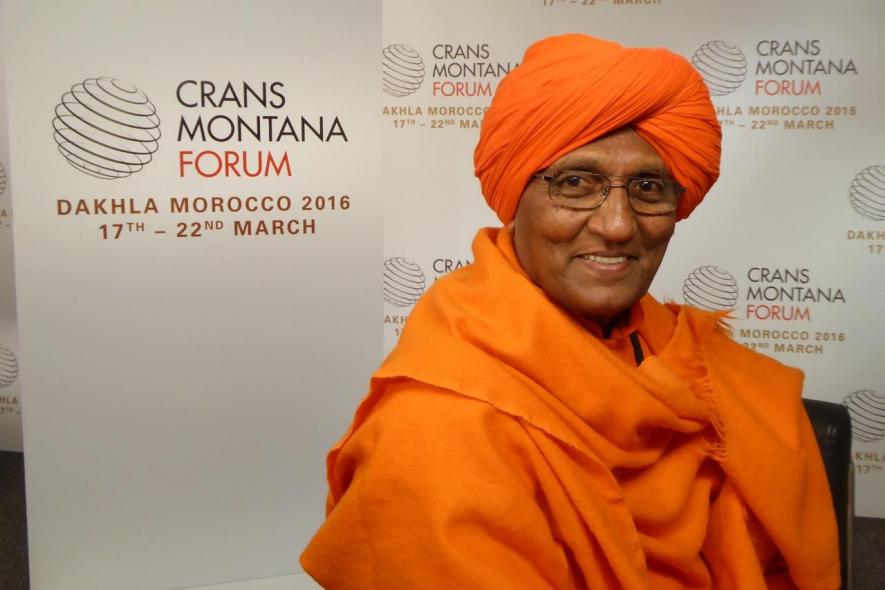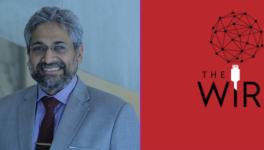Power, Charisma and Hope of Regeneration

The recent sordid episode of a retired IPS officer—a former acting head of the CBI to boot—spewing venom against Swami Agnivesh soon after his death has stirred some questions in my mind. It must be pointed out that the IPS association has in its response registered the true sentiments of upright and incorruptible police officers who are still struggling against odds to keep their spines under tremendous pressure from malevolent power-crazy politicians.
Unlike a high-ranking bureaucrat or police czar, Swami Agnivesh had no power bestowed upon him by office, birth or property. As he revealed in an interview about a year ago, he donned a monk’s robes in youth with a view to turning his spiritual yearnings and insights into a crusade against social injustice. He had realised that Indian society had sunk into a sort of catatony with deep-seated inequalities, discriminations and divisions, and fragmented humanity into inert and insensitive parcels.
His crusade for freedom of bonded labour did result in some benefits for those in thrall and he became known as someone prepared to share the travails of fellow humans in their struggles to win some dignity and freedom.
I first came in touch with him by accident through the AASU, which at that time was engaged in rescuing the cause of the Assamese people from the infamy brought by the calamitous massacre at Nellie as well as mobilising public support against the cycle of violence unleashed in Assam by ULFA and the army. By now it is clear that even though the Assam movement had from the beginning been infected with the bug of violence the Nellie massacre had been engineered by infiltrators (“ghuspetias”!) who were at work to turn the spark of violence into a raging fire of unquenchable enmity between major sections of the populations in Assam. It not only demonised Muslims of particular regions but also unwittingly set tribals against those who identified themselves as Assamese.
The cycle of violence did not end with the Assam Accord but continued to shake the state right through the nineties of the last century. He, along with Kuldeep Nayyar, had tried to study and understand the frustration and humiliation felt by the Assamese while the mainstream press simply remained cold. AASU did not care to abandon its old and outplayed sub-nationalism but in some ways still continued to represent the Assamese interests and sentiments.
Swami Agnivesh appeared then to me as a sympathetic listener and friend of the beleaguered Assamese without embracing their narrow rigidities. He was calm, serene and patient and obviously a man with heart-felt sympathy for people who suffered from injustice. His inherent temperament naturally did not and could not appeal to people who claimed superiority and authority by virtue of power acquired over others. No wonder his innocent friendliness and courtesy were returned with ferocious hatred and violence by those who had sold their souls to the Devil.
The squalid and brutal spite of such people has set me thinking about the corruption of power. Especially in new democracies where elections conferred on people unexpected and undreamt-of power when they are not trained to use it soberly. Here we may have to take lessons from the old sinner, the British, who had learnt them the hard way and over ages sought to put enough checks and balances on use of power at every level of social and political life in their own country. In their colonies, however, where they worked in conditions where those were not in place they turned into monstrous tyrants and brutal exploiters, wearing the mask of concocted legality.
Interestingly, it is this masquerade of legality that has charmed quite a few Indians who either do not see beneath it or pretend they don’t. This has persisted down to our times. You often see leaders invoking laws or sometimes the courts in support of bizarre and inhuman measures or practices. Once someone is ensconced in power he assumes infallibility and goes on to perpetrate in the name of law the most flagrant abuse of office and gross injustice. If he faces criticism he meets it with the confidence that his office invests that authority in him. His cronies and hangers-on applaud him as the hero of the hour.
Truth to tell, our modern traditions have not developed in such a way as to restrain and guide him in the use of such power. Institutions often fail to discharge their duty of controlling such perversion of power. And one actually sees it at work in diverse fields. The Emergency has been one such instance of the machinery of the government being put to gross misuse of power. Who remembers today the likes of Vidya Charan Shukla and his protegee?
Hence it is rare to see people with real statesman-like qualities wielding power in recent decades. One is on the contrary pained by wild excesses that strain our credence and the sycophancy that greets it. Think of a state government’s alleged order to the police to investigate every inter-faith marriage as part of some kind of “jihad”. Those who do the bidding of such politicians are rewarded with high posts and those who resist risk their careers.
People like late Swami Agnivesh, time and again, dared to challenge them and been themselves shining examples of the influence of moral passion exerting influence on society though having no claim to any position of formal authority. As long as we have such people in our midst, despite a large section of the media behaving like a howling pack of wolves and politicians and bureaucrats deep in their delusion that they will reign for ever and behaving as if there are no consequences of their crimes, there is always hope of regeneration.
The author is a socio-political commentator and cultural critic. The views are personal
Get the latest reports & analysis with people's perspective on Protests, movements & deep analytical videos, discussions of the current affairs in your Telegram app. Subscribe to NewsClick's Telegram channel & get Real-Time updates on stories, as they get published on our website.
























